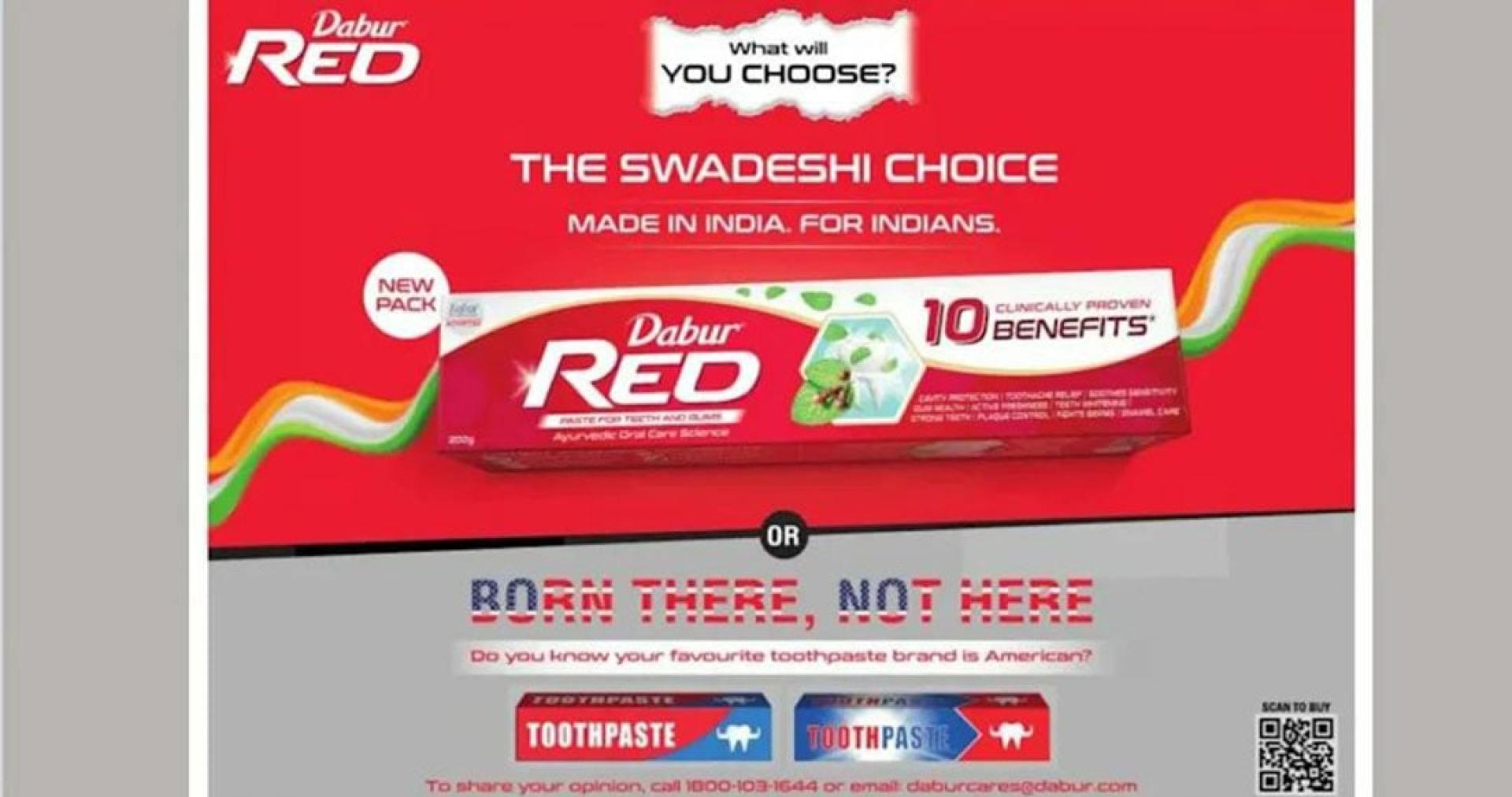The Indian toothpaste market is becoming the latest battleground for nationalistic sentiment. Following President Trump's announcement of tariffs up to 50% on Indian imports, bilateral relations have rapidly deteriorated, and this tense atmosphere has quickly spread to the field of corporate marketing. Local FMCG giant "Dabur" has seized the opportunity and targeted the long-dominant US brand Colgate.
According to Reuters, Indian Prime Minister Modi publicly called on his compatriots this week to support "Swadeshi," meaning a priority on buying goods made in India. He even encouraged students to make a list of all foreign brands used at home and have teachers oversee their gradual replacement. This speech resonated with Trump's new tariff policy and immediately sparked a domestic wave of boycotting American brands. In action lists spreading via WhatsApp, American companies such as McDonald's, Pepsi, and Apple were eye-catchingly included.
Dabur astutely captured this wave of nationalism, placing a large ad on the front page of The Times of India, directly challenging market leader Colgate. The ad showcases several unnamed toothpaste packages that starkly resemble Colgate, combined with a bold headline "Born there, not here," and uses the red, white, and blue colors of the American flag to subtly imply the rival's origin overseas.
In contrast, Dabur emphasizes itself as the authentic "Swadeshi" choice. The ad also includes a QR code that links directly to its Amazon India product page, clearly attempting to channel nationalism into actual sales.
● Colgate Holds a 43% Market Share
The report states that Colgate currently boasts an overwhelming 43% market share in India's toothpaste sector, with Unilever's Pepsodent in second place, and Dabur closely following at 17%. For a country with 1.4 billion people, the toothpaste market is not only massive but—thanks to e-commerce platforms such as Amazon—American brands have penetrated into India's smaller cities. If the boycott campaign continues to gain momentum, it may pose a significant challenge for US companies.
Communications consultant Srinivasan analyzed that Dabur's strategy is a form of "trend marketing," meaning to quickly seize consumer attention by capitalizing on current social vibes. While nationalism can attract short-term support, whether this can translate into sustained market share will ultimately depend on the inherent quality of the brand's products and its distribution network. (News Source: CTWANT)
